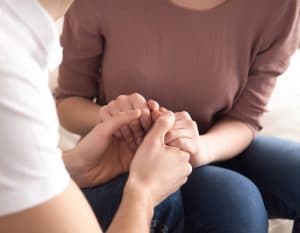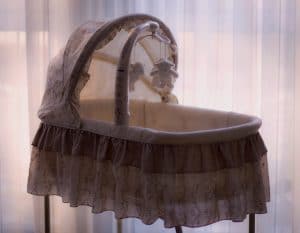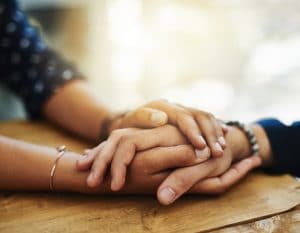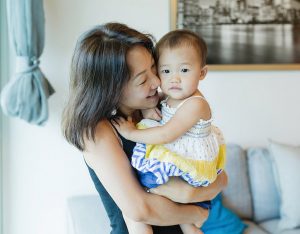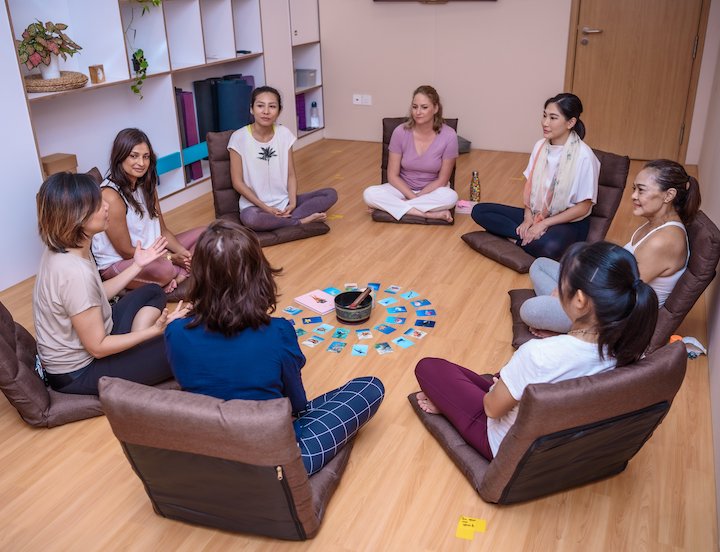
Many women go through pregnancy loss with limited support. They feel ashamed, guilty and blame themselves for it. I want them to know they are not alone
In 2016, my 12-week ultrasound checkup revealed a hard truth. My baby’s stomach had not closed up. Her stomach, kidney, liver and intestines were outside her tiny body. My doctor hinted she would not live long if we brought her into the world. Even basic needs, such as breathing and eating, would be challenging. Were my husband and I prepared to be with the baby 24/7? Did we have the financial means for her constant medical needs? Who would look after her if she outlived us?
This was my third pregnancy. I’d already lost two babies before they were born. And so we held on to hope. The turning point was when my parents pulled my husband aside and told him, ‘The pain is much harder to bear when you see what your child is going through.’ My parents lost my elder brother to brain cancer when he was only 7 years old. He was put on tubes, and always asking them, ‘When can I go to school again? When can I play with my friends again?’. It was traumatising.
Read More: Pregnancy Loss Resources and Support
We decided this third pregnancy would become my third loss
And so, 16 weeks into the pregnancy, we decided this third pregnancy would become my third loss. It was the hardest one to bear, as we needed to make the call for a planned loss. It was what many term an abortion.
Our doctor validated our decision as wise. I already had thin womb lining from going through dilation and curettage (D&C) twice, so he recommended feticide instead. It was a procedure where I would remain conscious throughout. On the day of the procedure, my baby’s back was facing my belly so we had to wait for her to turn around. I could see her moving through the screen of the live monitor. I watched the procedure take place and when her heart stopped beating, I was so heartbroken, I felt like my heart stopped together with hers. I cried so badly.
Waking up with morning nausea, but with my baby no longer alive inside my womb, was one of the most difficult moments in my life. One week later, my body finally ejected her. I regret not saying my goodbyes to Violet after delivery.
There was a silver lining. Soon after Violet left, my doctors found a serious ear infection eating into my bones and nerves. I was eroding away with intense pain and was put on so much morphine and pain medications that my kidneys failed at one point. If I had gone ahead with the pregnancy, Violet most likely wouldn’t have survived. I did my surgery for cholesteatoma in 2017, but was left permanently and fully deaf in my right ear.
Staying busy became my way to cope. Thoughts of ‘I’m not good enough” would seep in when I wasn’t doing something. I packed my activities back-to-back. I was always working and taking up new courses. But the restlessness I had was really a flight response. I constantly wanted to achieve more to prove my sense of worth. Being in stress mode actually made me feel good – cortisol can be addictive.
Read More: Talking About Miscarriages: We Share Our Stories About Pregnancy Loss
My body had failed me and I had failed my baby
Looking back at my second loss in 2014, I was 10 weeks pregnant at the doctor’s clinic when he said, ‘Oh, no more heartbeat. The baby’s gone. You had a miscarriage.’ It was a Friday afternoon, and so he added, ‘Try to hold the baby in until Monday. If it is the weekend, it is much more expensive.’
The loss shocked me, but the way he delivered these lines – casually, with little emotions – made it worse. He seemed only to care about having his weekends work-free. I felt unworthy of even a doctor’s care or comfort. I felt insignificant and like a failure. My body had failed me and I had failed my baby.
At the time, I didn’t know that 20% of pregnancies result in a loss, or that 90% of losses result from chromosome abnormalities, so I blamed myself: ‘What did I do? What did I eat?’ I was confused. Not wanting to seem like I was of burden to the doctor, I booked the surgery for Monday.
My dad, my life helpline, was the first person I called. I was crying non-stop. ‘We will move through this,’ he assured me. On my way home, I bumped into my neighbour. His wife was also pregnant and I hesitated to tell him. But I couldn’t hide my distressed face. He gave me the biggest hug so tight and so warm, he didn’t have to say much. I learnt something that day: intentions and energy require little words to shine through.
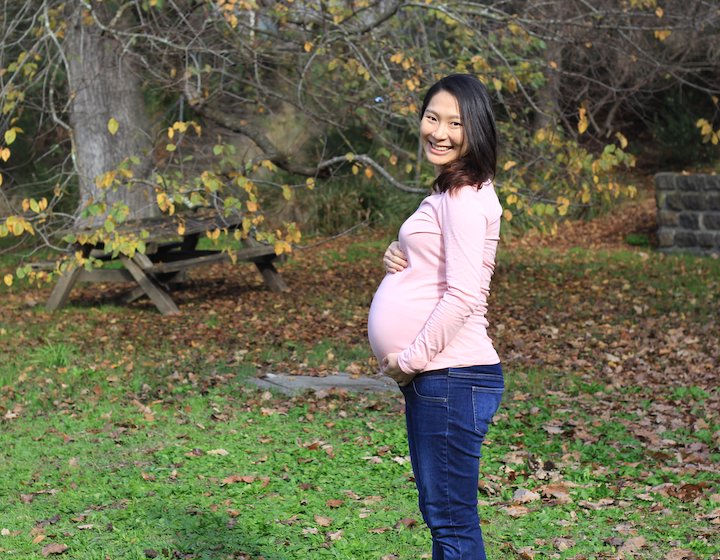
A mindset shift led me to face my fourth pregnancy more confidently
When I was pregnant, people would tell me not to walk down staircases, not to eat this, or not to do that. But when I lost my baby, it wasn’t about what I ate or what I did. I was very careful with my third pregnancy. I stopped working and stayed home for three months, just reading and relaxing. But sh*t still happens.
That’s when I changed my mindset: if it’s God’s gift, it will be mine to hold. What is meant to be, will be. This shift led me to face my fourth pregnancy more confidently, despite having three angel babies.
Of course, I had thoughts of ‘Is she going to make it?’ on the days Elvanna didn’t kick. At the same time, I wanted to introduce her to my world and feel my emotions while she was in my womb. I went about with my usual activities with faith that we would pull through this together. We hiked mountains in Nepal for seven days, visited Hong Kong, attended a wedding in Japan, and attended work meetings in the Philippines as a team. Six months into the pregnancy, I flew to Melbourne, where many of my relatives live and where I could also count on extended family support. Every day, I did yoga, swam, read, shopped for fresh produce at the market and cooked. At night, we read and listened to music together. I savoured every pregnancy moment, feeling authentic in leading such a lifestyle. I appreciate my husband for giving me the freedom to make these choices on my pregnancy journey. I was able to deliver Elvanna naturally through hypnobirthing without any drugs or episiotomy.
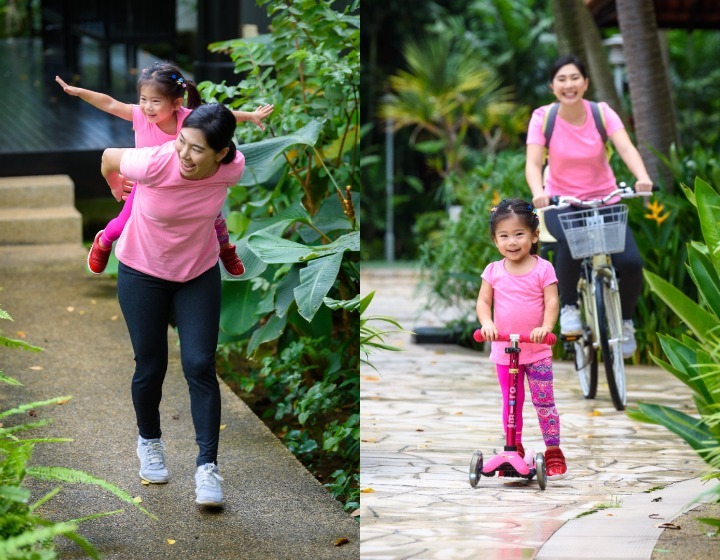
There is a 10% chance of cholesteatoma recurrence in my lifetime, and it did reappear in 2019. I almost lost my face because the infection was so close to my facial nerves. On the day of the surgery, my husband insisted on taking Elvanna to the hospital, saying, ‘I want her to see how strong her mum is.’ That was a big moment for me. I felt uncertain going into the surgery, knowing I might not be able to control my smile or speech if the surgery failed. How would I even talk or read to Elvanna? What if I become a burden to the family? Thankfully, the surgery was successful, though to this day I keep a close watch with a visit to the doctor every six months.
If we suppress grief to move on with life, it can be a disservice to our bodies and ourselves
All these experiences have transformed me and pushed me to move forward to make a difference. This year, I started offering pregnancy loss coaching and circle support, in addition to setting up Mindful Space in 2019. This is what my angel babies would want me to do, and they are guiding me throughout this journey.
Many women go through pregnancy loss with limited support. They feel ashamed, guilty and blame themselves for it. But I want them to know they are not alone. Grief is basically intense love that has nowhere to go.
When I first started telling my story, someone came to me and said, ‘Nobody knows I had a loss, not even my spouse.’ We all have our own stories and experiences, and people can be too quick to judge. In our society, we tend to suppress our grief to move on with life. But when we do that, we do a disservice to our bodies and ourselves. Instead, we can work on moving forward with our grief.
We can transform the energy of vulnerability in grief into our strength.





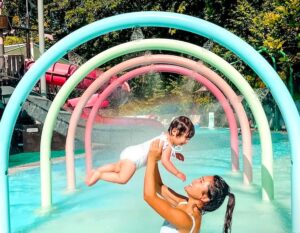
 View All
View All




 View All
View All








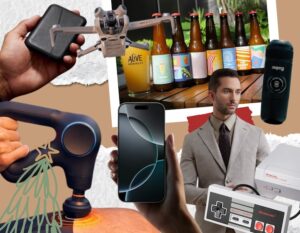

 View All
View All



